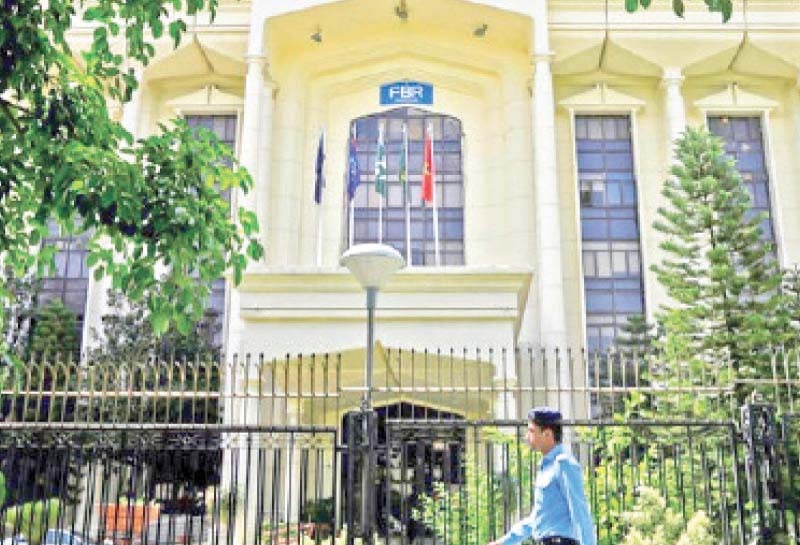
Prime Minister Anwaarul Haq Kakar has not approved the restructuring plan of the Federal Board of Revenue (FBR) due to constitutional issues in setting up a National Tax Authority (NTA) and confusion over the mandate of the newly proposed structure.
Sources told The Express Tribune that PM Kakar was not satisfied with the proposed restructuring plan and the PMO has now directed the establishment of yet another committee to review the restructuring plan proposed by the Dr Shamshad Akhtar-led task force that had recommended the FBR reform plan. The new committee will also be headed by Dr Akthar.
Fawad Hasan Fawad, Federal Minister for Privatisation, Chairman National Database Registration Authority, officials from the PM’s Office, and the FBR would be members of the new committee, they added.
Many of the steps that the FBR’s task force proposed had also been recommended by the 2015 Tax Reforms Commission, which remained unimplemented during the past seven years.
The sources said that the task force had proposed to establish a NTA with a mandate to oversee both the federal and the provincial taxes. But questions were raised about the constitutional autonomy that the provinces enjoy and also whether an interim setup should take such drastic measures.
The task force was of the opinion that the provinces collect taxes less than 1% of the Gross Domestic Product. In India, the collection by the states was around 6% of the GDP, underscoring room for focusing more on the federating unit.
After the PM did not clear the proposal of the restructuring of the FBR, the matter was not placed before the Special Investment Facilitation Council (SIFC) in its seventh meeting held on Thursday, according to government officials. They said once the newly established committee scrutinises the task force proposal and endorses it, only then it would be brought before the SIFC.
The task force also proposed the establishment of a Tax Policy and Revenue Division aimed at separating tax policy from the administration. But the PM did not approve it, said the sources.
The task force also recommended autonomous FBR under the Tax Administration Oversight Board. There were unanswered questions about the functions of the NTA and an autonomous Tax Administration Oversight Board, which caused confusion, said at least two participants in the meeting that was chaired by the PM a few days ago.
The task force had recommended that the oversight board would have financial autonomy with a single-line budget as a percentage of the tax collection. It would also collaborate with NADRA – which would have a seat on the policy board. The sources said that this recommendation was also deferred by the PM.
The task force had also recommended the separation of Customs from FBR aimed at focusing on trade facilitation and border controls. But the sources said that this was also not approved by the PM.
Now these issues would be looked into by the new committee on which Fawad Hasan Fawad would also sit.
The task force proposed establishing a separate Customs Division under the Ministry of Finance, with an autonomous Federal Board of Customs. The proposed Customs Board should be headed by the Chairman Federal Board of Customs, who shall also be de-facto Secretary Customs Division, according to the task force recommendation.
The task force proposed that the Customs Board would have eleven members, five of which should be from concerned ministries for eg Ministry of Commerce, Ministry of Interior, Ministry of Industries & Production, Ministry of Foreign Affairs, and Ministry of Maritime Affairs.
The sources said that the task force was of the view that due to a traditional revenue-centric approach, Pakistan Customs has been unable to outperform in functions of critical importance like counter-smuggling, trade facilitation, intellectual property rights (IPR) enforcement, transit trade, internal security, and food security.
Instead of focusing on domestic revenue mobilisation, Pakistan has a misplaced burden of tax revenue on international trade which has adversely affected trade facilitation, stymieing export-led growth in the country, according to the task force.
The need for reforms has also been highlighted by the World Bank Functional Review of March 2018 that suggests shifting the tax collection efforts from the border to the domestic market by focusing on direct rather than indirect taxation.
Being a part of the FBR, Customs is burdened with the myopic and outdated expectation of mere revenue collection, leading to less than essential focus on trade facilitation, border protection and market control.
The sources indicate that PM Kakar has greenlit alternative administrative measures, excluding restructuring. In an effort to expand the tax base, the FBR is set to introduce new regulations for data sharing among government departments. District tax offices have been informed that they will receive 30% of the existing FBR workforce.
Additionally, PM Kakar has given approval for a plan to levy taxes on retailers, with the tax amounting to three times the rental value of the business premises, according to the sources. To facilitate this, the FBR will launch a mobile app, Tajir Dost, enabling retailers to calculate and pay their taxes. The tax will be disbursed in 12 monthly instalments and can be adjusted during the return filing process.
Published in The Express Tribune, November 21st, 2023.
Like Business on Facebook, follow @TribuneBiz on Twitter to stay informed and join in the conversation.


1731933289-0/BeFunky-collage-(68)1731933289-0-165x106.webp)


1729662874-0/One-Direction-(1)1729662874-0-165x106.webp)












COMMENTS
Comments are moderated and generally will be posted if they are on-topic and not abusive.
For more information, please see our Comments FAQ